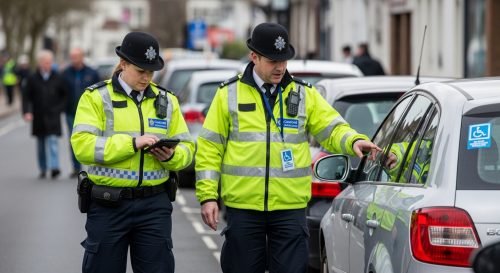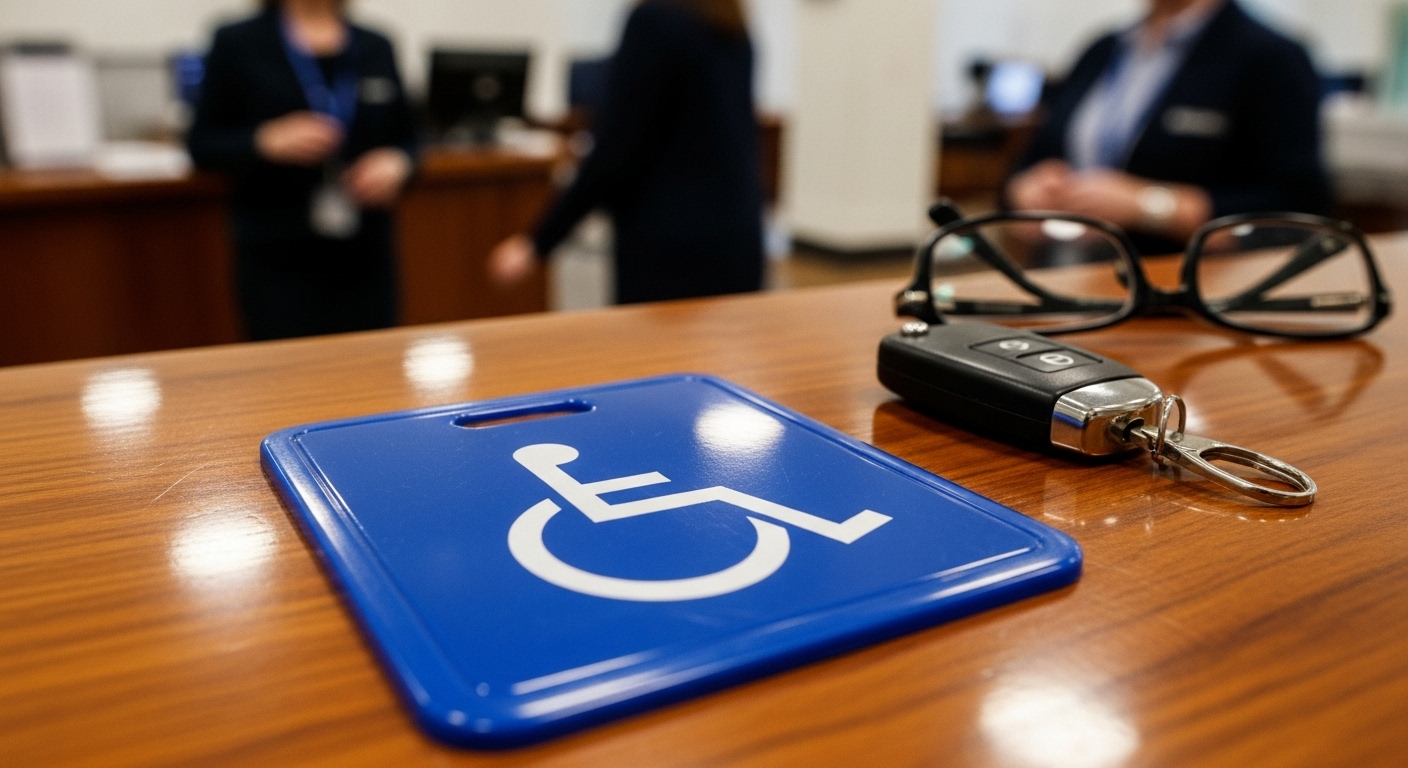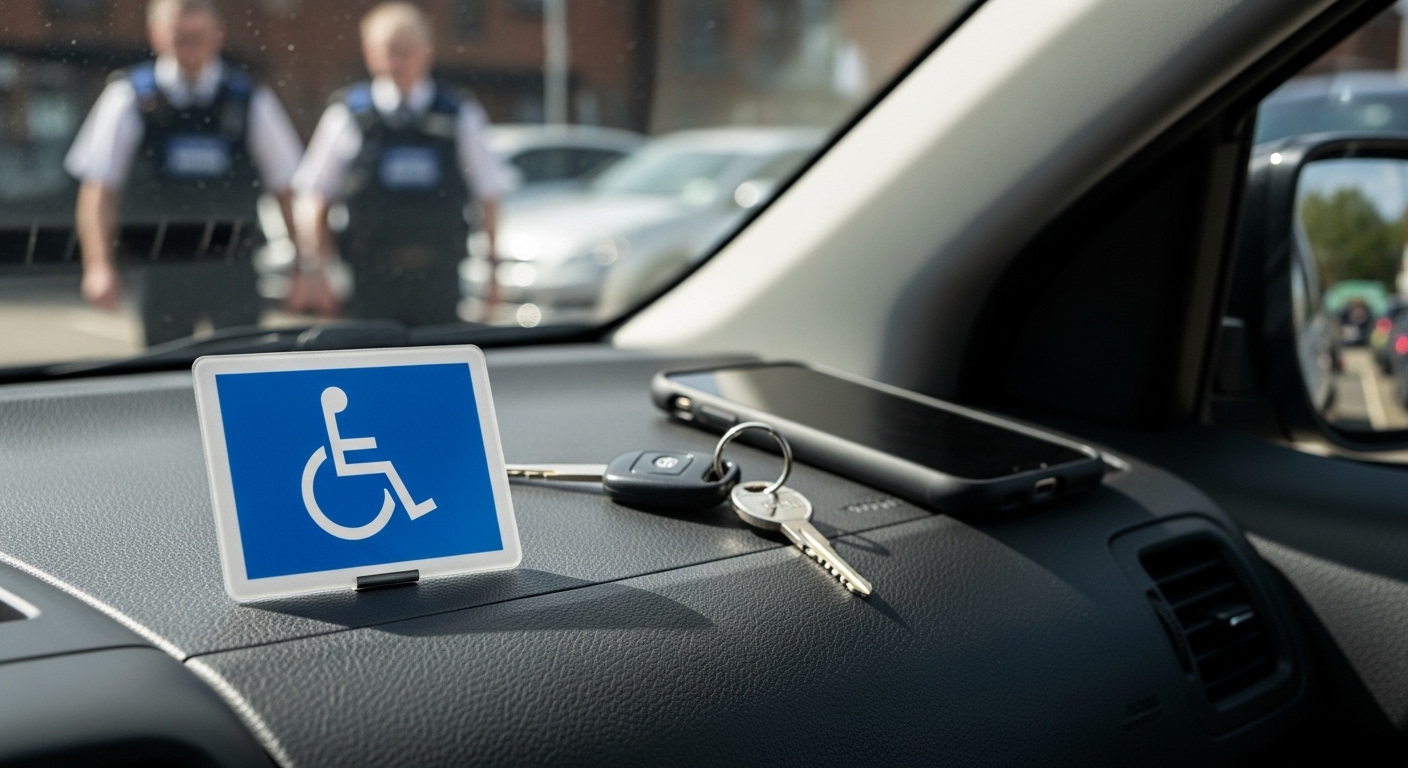The Cost of Blue Badge Misuse: Financial and Legal Risks

The Cost of Blue Badge Misuse: Financial and Legal Risks
The Blue Badge scheme is a vital lifeline for individuals with disabilities, offering them accessible parking spaces and easing their ability to engage with public spaces. However, the misuse of these badges—whether intentional or accidental—comes with serious consequences. Misuse not only undermines the integrity of the scheme but also carries significant financial, legal, and reputational risks for those involved.
In this article, we will explore the true cost of Blue Badge misuse, detailing the legal implications, financial penalties, and broader consequences. Whether you are a badge holder, a carer, or simply seeking to understand the rules better, this guide aims to inform and engage on this critical issue.
What Is Blue Badge Misuse?

Blue Badge misuse occurs when a badge is used in ways that violate the rules of the scheme. Common examples include:
- Using a Badge That Does Not Belong to You
- Example: A family member uses a relative’s badge to park closer to their workplace without the badge holder being present.
- Using an Expired, Lost, or Stolen Badge
- Example: Continuing to use a badge that has already been reported lost or that is no longer valid.
- Lending a Badge to Others
- Example: A badge holder allows a friend to use their badge to park in a restricted area.
- Forging or Altering a Badge
- Example: Tampering with a badge’s expiry date to extend its use.
- Improper Display
- Example: Failing to position the badge correctly on the dashboard, making it unreadable to enforcement officers.
While some instances of misuse are deliberate acts of fraud, many arise from misunderstandings of the rules. Regardless of intent, the consequences can be severe.
Financial Risks of Blue Badge Misuse
Misusing a Blue Badge can lead to immediate and long-term financial consequences, including fines and legal costs.
- Fixed Penalty Notices (FPNs)
Local councils and enforcement officers can issue FPNs for Blue Badge misuse, with fines ranging from £100 to £1,000 depending on the severity of the offence.
- Case Study: A driver in Manchester received a £500 fine after being caught using their late mother’s Blue Badge to park in a restricted area.
- Court-Imposed Fines
For serious cases involving fraud or forgery, offenders may be prosecuted under the Fraud Act 2006 or the Road Traffic Regulation Act 1984, leading to significantly higher fines.
- Example: In a case of badge forgery, a London resident was ordered to pay £5,000 in fines alongside court costs.
- Loss of Income
For those whose employment requires frequent travel or access to priority parking, the confiscation of a misused badge can disrupt work routines, potentially affecting earnings.
Legal Risks of Blue Badge Misuse

- Criminal Convictions
Blue Badge misuse is a criminal offence, and a conviction can have lasting consequences on your legal record.
- Fraud Act 2006: Misuse involving dishonesty, such as forgery or using a badge for personal gain, can result in prosecution.
- Road Traffic Regulation Act 1984: Broader misuse, such as parking violations involving a Blue Badge, can also lead to legal action.
- Custodial Sentences
While rare, extreme cases of fraud may result in imprisonment.
- Example: A driver in Birmingham who created counterfeit badges was sentenced to 12 months in prison for defrauding the local council.
- Criminal Record
A conviction for Blue Badge misuse can lead to a permanent criminal record, affecting:
- Employment prospects, particularly in professions requiring high ethical standards.
- International travel, as some countries may restrict entry for individuals with criminal records.
Reputational Risks of Blue Badge Misuse
The consequences of Blue Badge misuse extend beyond financial and legal penalties, often damaging an individual’s personal and professional reputation.
- Loss of Trust
Being caught misusing a Blue Badge can erode trust among colleagues, friends, and family, particularly if the misuse is perceived as dishonest or exploitative.
- Professional Consequences
For professionals in regulated industries, such as law, healthcare, or finance, a conviction for misuse may trigger investigations by governing bodies, leading to:
- Suspension or revocation of licences.
- Disciplinary action from employers.
- Media Attention
High-profile cases of misuse often attract local media coverage, amplifying reputational damage.
- Example: A solicitor in London faced public scrutiny after being caught using a forged Blue Badge to park near their office. The resulting disciplinary action and media attention tarnished their professional standing.
How Councils Enforce Blue Badge Misuse

Local councils employ a range of strategies to detect and penalise Blue Badge misuse, including:
- Spot Checks
Enforcement officers routinely patrol areas with high instances of misuse, such as shopping centres and hospital car parks, checking vehicles displaying Blue Badges.
- Badge Verification Technology
Some councils use real-time verification systems, allowing officers to confirm a badge’s validity and ownership instantly.
- Public Reporting
Councils encourage the public to report suspected misuse, further enhancing enforcement efforts.
- Data Sharing
Local authorities share information on lost, stolen, or revoked badges to prevent misuse across regions.
How to Avoid Blue Badge Misuse
To avoid the risks associated with Blue Badge misuse, it’s essential to follow the scheme’s rules and educate those who may assist or accompany you.
- Understand the Guidelines
Familiarise yourself with the terms and conditions of the scheme, including when and where the badge can be used.
- Keep the Badge Updated
Renew your badge promptly and report any loss or theft immediately to prevent misuse.
- Display the Badge Correctly
Ensure the badge is positioned as required, with all details visible to enforcement officers.
- Educate Family and Carers
Make sure anyone who drives or assists you understands the rules for badge use to avoid accidental misuse.
Key Takeaways: Understanding the Cost of Blue Badge Misuse

- Blue Badge misuse is a crime: Offenders face financial, legal, and reputational risks, regardless of intent.
- Penalties vary: Misuse can result in fines ranging from £100 to £1,000, with severe cases leading to prosecution, criminal records, or even imprisonment.
- Reputational damage is significant: A conviction can affect personal trust, professional standing, and career prospects.
- Councils actively enforce misuse: Spot checks, public reporting, and advanced verification systems help councils detect and penalise misuse effectively.
Blue Badge misuse carries significant risks, not only for those directly involved but also for the integrity of the scheme as a whole. By adhering to the rules and using badges responsibly, we can protect this essential support system for individuals with disabilities.
If you have questions about Blue Badge misuse or are facing allegations, our team of legal experts is here to help. Contact us for personalised advice and assistance in navigating this complex area of law.
Safeguarding the Blue Badge scheme benefits everyone, ensuring that those who truly need it can continue to access the support and accessibility it provides.
Case Study 1: Immigration Risk Avoided After Disabled Badge Misuse
Our client, with a pending immigration application, was caught using a family member’s disabled badge to park. A criminal conviction could have seriously jeopardized their future in the UK.
We stepped in promptly, aware of the high immigration stakes. By negotiating with the council and framing the incident as a one-time mistake, we secured an out-of-court settlement. The client’s record remained clean, and their immigration prospects were protected.
Case Study 2: Young Professional Spared a Criminal Record
A young professional was caught misusing a disabled badge and feared how a conviction might impact their career.
We contacted the council immediately, highlighting our client’s good character and the isolated nature of the incident. Our efforts led to a formal caution, avoiding a criminal record and safeguarding their professional future.
Case Study 3: DBS Check Cleared After Badge Incident
A client faced a criminal charge for using a disabled badge, putting their ability to pass a DBS check at risk.
Makwana Solicitors engaged with the council, presenting personal mitigating circumstances. We secured a caution, preventing a conviction and preserving their clean DBS status.
Case Study 4: Regulatory Risk Averted for Professional Client
Using a family member’s disabled badge put this client’s professional licensing in jeopardy.
We acted quickly, emphasising their clean record and the context of the incident. The council agreed to issue a caution, avoiding court proceedings and protecting the client’s career and reputation.
Case Study 5: Visa Application Saved After Disabled Badge Misuse
While awaiting a visa decision, our client was stopped for misusing a relative’s disabled badge. The risk of a criminal record could have disrupted their immigration process.
We urgently made representations to the council, explaining the seriousness of the consequences. Our intervention resulted in an out-of-court settlement, keeping their record clean and visa application intact.
Case Study 6: Clean Record Preserved with Council Caution
A client was found using a disabled badge not issued to them and feared a criminal conviction.
We worked directly with the council, showcasing the client’s good character and the exceptional circumstances. The council issued a caution, keeping the matter off their criminal record.
Case Study 7: DBS Status Protected After Parking Offense
Facing an upcoming DBS check, a client was caught using a family member’s disabled badge.
We stepped in to protect their future, negotiating with the council to secure a caution. This resolution ensured the client could continue their career with a clean DBS history.
Case Study 8: Out-of-Court Settlement Secured for Parking Violation
One client was in serious trouble after using a disabled badge they weren’t entitled to. A conviction could have damaged both their personal and professional life.
We acted swiftly, presenting the incident as a one-off mistake and highlighting the client’s clean record. The council agreed to an out-of-court settlement, keeping the client’s record clean.
Case Study 9: Conviction Avoided Through Skilled Negotiation
After being stopped for misusing a disabled badge, our client faced possible criminal charges and the risk of long-term consequences.
Makwana Solicitors contacted the council immediately, requesting a proportionate response. A caution was issued, preventing a conviction and preserving the client’s future opportunities.
Case Study 10: Peace of Mind Secured with Clean Record Outcome
A client was caught using a disabled badge they weren’t entitled to, facing potential prosecution.
We intervened without delay, making thoughtful and strategic representations to the council. Our efforts led to an out-of-court settlement, sparing the client a criminal record and helping them move on confidently.
Notice: Informational Content Disclaimer
The content provided on this website, including articles, blog posts, and other informational materials, is intended for general informational purposes only. It is not intended as, and should not be considered, legal advice.
Visitors to this website should be aware that the information presented here is not a substitute for seeking legal advice from a qualified solicitor or legal professional. Each individual's legal situation is unique, and the information provided may not be applicable to specific circumstances.
If you require legal advice or have specific legal questions, we encourage you to contact us directly. Our experienced team of solicitors is here to assist you with your legal needs and provide tailored advice to address your concerns.
Please be advised that any communication through this website, including the use of contact forms or email, does not create a solicitor-client relationship. Confidential or time-sensitive information should not be sent through this website. To establish a solicitor-client relationship and discuss your legal matters in detail, please contact us for a consultation.
We strive to provide accurate and up-to-date information, but we make no representations or warranties regarding the accuracy, completeness, or suitability of the information contained on this website. We shall not be liable for any reliance placed on the information provided herein.
Thank you for visiting our website. We look forward to the opportunity to assist you with your legal needs.




